
History of LGBTIQA Activism and Lawmaking in Canada
-
HAYA
- at 28 April 2023
By Jawed Anwar
In this article, I will attempt to understand the history and timeline of how an organized LGBT minority overcame and prevailed in Canadian society. They achieved this by securing all the rights curtailing the rights of religious groups and family-oriented people with traditional family values. The organized minority gained power through advocacy, charity, human rights, and many social groups.
If religious groups and family-oriented people wish to re-establish their rights and protect their children from aggressive indoctrination that is occurring in publicly-funded schools through school system, curriculum, books, cartoons, and movies, they should reflect on their history of inactivity, negligence, and silence during those periods.
In Europe and European Colonies during the 17th, 18th, and 19th centuries, homosexuality (LGBT lifestyle) was considered a crime. In many countries, including British North America, it was punishable by the death penalty. This was in accordance with the Bible's Sharia (law).
“If a man has sexual relations with a man as one does with a woman, both of them have done what is detestable. They are to be put to death; their blood will be on their own heads.” (Leviticus 20:13)
“Although they know God’s righteous decree that those who do such things deserve death, they not only continue to do these very things but also approve of those who practice them.” (Romans 1:32)
In 20th Century Canada Changes to the Criminal Code in 1948 and 1961 were made declaring gay men as "criminal sexual psychopaths" and "dangerous sexual offenders." These labels provided for indeterminate prison sentences.
However, same-sex sexual activity was decriminalized in Canada as a result of legislation (Bill C-150) introduced in 1967 and passed in 1969 by then-Justice Minister and Attorney General of Canada, Pierre Trudeau (who later became the 15th prime minister of Canada). He is the father of Current Prime Minister of Canada, Justin Trudeau.
In 1971, Canada's first gay rights march, the We Demand Rally, took place in Ottawa. The Body Politic, Canada's first gay liberation newspaper, was published in Toronto and continued for about 15 years. A short run documentary series, Coming Out, became Canada's first LGBT television series when it aired on Maclean-Hunter cable in Toronto in 1972.
In 1973, several Canadian cities held gay rights events in conjunction with Pride Week 1973.
In 1974, four lesbians who became known as the "Brunswick Four" were involved in a historic incident in Toronto, Ontario. The four were evicted from the Brunswick House, a working-class beer hall on Bloor Street, and subsequently arrested, and three were later tried in Ontario Court for obstruction of justice. Two of those three women were acquitted in May 1974, but one, Adrienne Potts, served three months’ probation.
The arrest and its consequences was a key incident ushering in a more militant gay and lesbian liberation movement in Canada, much as the Stonewall Inn riots politicized gays and lesbians in the United States. Warner also notes that this was one of the first occasions that a gay or lesbian topic received extensive press coverage in Canada.
In 1975 and 1976, there were large-scale protests after the police raided gay establishments in Quebec and in Ottawa in preparation for the 1976 Olympics.
The 1977 Mystique and Truxx bathhouse raids occurred in Montreal, which led within a few months to Quebec becoming the first jurisdiction (larger than a city or county) in the world to prohibit discrimination based on "sexual orientation" in the public and private sectors. The Quebec Charter of Human Rights and Freedoms prohibits discrimination in employment, housing and certain services and other activities, but it does not apply to federally regulated activities. The same year, the Canadian Immigration Act was amended, removing a ban on homosexual men as immigrants.
On February 5, 1981, four gay bathhouses in Toronto were raided by the Toronto Police Service in Operation Soap. The event is now considered one of the crucial turning points in Canadian LGBT history, as an unprecedented community mobilization — now regarded as the Canadian equivalent of the 1969 Stonewall riots — took place to protest police conduct. One of the protest marches during this mobilization is now generally recognized as the first Toronto Pride event.
In 1982, Canada patriated its Constitution, to which it added the Canadian Charter of Rights and Freedoms. Section 15 of the Charter, which guarantees equality "before and under the law" and the "right to the equal protection and equal benefit of the law without discrimination" does not explicitly list sexual orientation, but was designed to be inclusive and allow the courts to find that specific grounds are included. In 1995, the Supreme Court of Canada ruled in Egan v Canada that "sexual orientation" should be 'read in' to Section 15.
In 1983, the Quebec Gay Archives was established.
In 1984, Pink Triangle Services becomes the first registered gay charity, later becoming inclusive of all people in the queer community re-branding as PTS a centre for the celebration of sexual and gender diversity.
In the 1980s, several attempts were made to add "sexual orientation" into the federal government's Human Rights Act, an amendment that did not take place until 1996.
In 1986, sexual orientation was added to the Ontario Human Rights Code as a prohibited ground for discrimination. Like most other human rights acts in Canada, this act prohibits discrimination in employment, housing, services and certain other activities in the public and private sectors, but it does not apply to federally regulated activities. An advocacy group of LGBTQ Egale Canada is founded.
In early 1987, sexual orientation was included in the newly adopted Yukon Human Rights Act and later that year added to the Manitoba Human Rights Code.
In 1987, the Public Service Alliance of Canada negotiated benefits for the same-sex partners of Northwest Territories government employees—a first in Canada for public sector workers.
In 1988, New Democratic Party Member of Parliament (MP) Svend Robinson became the first MP to come out, declaring that he is gay to the media outside the House of Commons. In the same year, the United Church of Canada became the first church in Canada to allow the ordination of gays and lesbians.[12]
In 1990, Yukon government employees became the second public sector workers in Canada whose same-sex partners were eligible for spousal benefits, including a dental plan.
In 1991, sexual orientation was added to the Nova Scotia Human Rights Act.
In 1992, then-Justice Minister and Attorney General of Canada, Kim Campbell (who later became Canada's first female prime minister) announced that Canada was lifting its ban on homosexuals in the Canadian Forces, allowing them to serve openly and live on-base with their partners.[17] Canada was one of the first modern countries to allow homosexuals in the military due to the court decision of Haig v. Canada, 1992 CanLII 2787 (ON CA). Sexual orientation was added to the human rights laws of New Brunswick and British Columbia.
In 1993, sexual orientation was added to the Saskatchewan Human Rights Act. The Supreme Court of Canada rejected a discrimination claim based on sexual orientation in Canada (Attorney General) v. Mossop because the Charter was not used to argue the case.
In 1994, the Supreme Court ruled that gays and lesbians could apply for refugee status based on their sexual orientation. A raid in a Montréal bar where 300 persons were maliciously (and falsely) charged with being in a bawdy house eventually turned into a scandal that eventually led to the resignation of the chief of police.
In 1995, the Supreme Court of Canada ruled in Egan v. Canada that "sexual orientation" should be 'read in' to Section 15 of the Canadian Charter of Rights and Freedoms, a part of the constitution. The ruling had a wide impact since section 15 applies to all laws, including human rights acts that prohibit discrimination by all employers, landlords, service providers and governments. A court in Ontario ruled that gay and lesbian couples wishing to adopt jointly should be allowed to do so, making Ontario the first province to allow this. Currently, nearly all provinces allow gay and lesbian couples (and single gays and lesbians) to adopt children. The Newfoundland Human Rights Act was amended to include sexual orientation.
In 1996, sexual orientation was added to the Canadian Human Rights Act, an anti-discrimination law that applies to federally regulated activities throughout Canada. That same year, the Green Party became the first to endorse the legalization of same-sex marriage, becoming the first federally registered party to do so.
In 1998, the Supreme Court of Canada decided in the Vriend v. Alberta case that section 15 of the Canadian Charter, as interpreted in Egan v. Canada, required that the Alberta human rights law be read and applied as if the words "sexual orientation" were included. Glen Murray was elected Mayor of Winnipeg becoming the first openly gay mayor of a large North American city. The Prince Edward Island Human Rights Act was amended to include sexual orientation.
In 1999, gays and lesbians scored a major victory when the Supreme Court of Canada ruled, in M. v. H., that gay and lesbian couples should have the same rights as heterosexual common-law couples. In June 1999, a 216–55 vote in the House of Commons supported preserving the legal definition of "marriage" as the union of a man and a woman. Sexual orientation is included in the newly adopted Nunavut Human Rights Act.
In April 2000, the federal Liberal government responded to the 1999 Supreme Court decision by passing a bill (C-23) which amended 68 federal statutes, including pension benefits, bankruptcy protection, income taxes, old age security, and immigration, among others, to grant equal rights to homosexual common-law couples.[12]
In 2000, in the case of Little Sisters Book and Art Emporium v. Canada (Minister of Justice), the Canadian Supreme Court ruled that gay publications, even those that were sexually explicit were protected by the freedom of speech and expression clauses in the Canadian Charter of Rights and Freedoms. Little Sister's Book and Art Emporium, however, has continued to litigate against what it considers to be discriminatory border practices.
In 2001, NDP MP Libby Davies publicly acknowledged she had a female partner, becoming the country's first (and so far only) female Member of Parliament to come out.
In 2002, sexual orientation and gender identity were included in the Northwest Territories Human Rights Act.
In 2003, the British Columbia Court of Appeal made a unanimous decision that limiting the definition of marriage to heterosexual couples violated equality rights. The ruling was not effective immediately, but allowed a two-year transition period for Ottawa to legally recognize same-sex marriage. In June, the Ontario Court of Appeal upheld the decision of a lower court to allow same-sex marriage.
In May 2004, the House of Commons and the Senate passed Bill C-250, which added "sexual orientation" to the "hate propaganda" section of the Criminal Code, thus making it illegal for people to propagate hate based on sexual orientation. This did not include clergymen however.
In July 2004, Scott Brison, who had previously run for the leadership of the Progressive Conservative Party of Canada was appointed Minister of Public Works and Government Services by Liberal Prime Minister Paul Martin, becoming Canada's first openly gay cabinet member.
In December 2004, the Supreme Court of Canada replied to the federal government's draft legislation that would legalize same-sex marriage nationwide. The Court ruled that the federal government has the exclusive authority to define marriage, that same-sex marriage was constitutional and was far from violating it, in fact "it flowed from" it, and that religious officials can't be forced to perform gay weddings. The Court refused to answer whether or not the traditional definition of marriage was consistent with the Charter.
On June 28, 2005, by a vote of 158–133, the House of Commons passed Bill C-38, the Civil Marriage Act and on July 19, 2005, by a vote of 47–21, the Senate gave its approval to the bill.
On July 20, 2005, C-38 received royal assent from Chief Justice of Canada, Beverley McLachlin, acting in her role as deputy governor general. Canada became the fourth country to officially sanction same-sex marriage nationwide, behind the Netherlands, Belgium, and Spain. Same-sex marriages began in Ontario and British Columbia in 2003, with other provinces following via court challenges. The Ontario Court of Appeal ordered a religious same-sex marriage that was performed in January 2001 legally valid, thus retroactively making it the first legal same-sex marriage in modern times (as The Netherlands did not legalize same-sex marriage until April 2001).
In 2006, the International Conference on LGBT Human Rights was held in Montreal, culminating with the issuance of the Declaration of Montreal. The Borough of Ville-Marie in Montreal soon became the first government in the world to adopt the declaration, and the New Democratic Party (NDP) became the first political formation in the world to do so at its convention in September.
As of 2009, all provinces and territories had included "sexual orientation" in their human rights laws, and the Northwest Territories include "gender identity" in theirs.
In February 2011, the House of Commons passed at third reading NDP MP Bill Siksay's Bill C-389, to amend the federal Canadian Human Rights Act to include ‘gender identity’ and ‘gender expression’ as prohibited grounds of discrimination under Canadian federal anti-discrimination laws, at third reading, but it died on the order paper in the Senate when Parliament was dissolved. The bill was reintroduced as Bill C-279 in the subsequent Parliament and passed second reading on June 6, 2012. June 2012 also saw the addition of ‘gender identity’ and ‘gender expression’ to the Ontario Human Rights Code and of gender identity to the Manitoba Human Rights Code.
The May 2, 2011 election saw the arrival of a Conservative majority government. At the same time, the NDP became official opposition and elected the largest LGBT caucus in Canada's history, with four out LGBT New Democrat MPs, later increased to five.
On December 6, 2012 Bill No. 140 of the 61st General Assembly of Nova Scotia known as the Transgendered Persons Protection Act was given Royal Assent by the then Lieutenant Governor of Nova Scotia Mayann Francis. It added both ‘gender identity’ and ‘gender expression’ to the list of things explicitly protected from harassment in the province's Human Rights Act.
On January 26, 2013, Kathleen Wynne was elected leader of the Liberal Party of Ontario, and on February 11, 2013, was sworn into office as the 25th Premier of Ontario, becoming the first female and first LGBT first minister in the history of the province. By virtue of her office, Wynne is the highest ranking elected openly LGBT official in the history of North America.
On February 28, 2016, CBC News reported that Prime Minister Justin Trudeau intended to recommend that a pardon under the authority of the Royal Prerogative of Mercy be granted posthumously to Everett George Klippert, the last person in Canada to be imprisoned for homosexuality. Lawyer and LGBT activist Doug Elliott commented, "It's great that the young Trudeau is finishing the work that his father started."
On June 19, 2017 Bill C-16, after having passed the legislative process in the House of Commons and the Senate, became law upon receiving Royal Assent which put it into immediate force.
This was an Act to amend the Canadian Human Rights Act and the Criminal Code is a law passed by the Parliament of Canada. It was introduced as Bill C-16 of the 42nd Parliament, 1st Session. The law adds ‘gender expression’ and ‘gender identity’ as protected grounds to the Canadian Human Rights Act, and also to the Criminal Code provisions dealing with hate propaganda, incitement to genocide, and aggravating factors in sentencing.
Source: Wikipedia
IslamicOntario@gmail.com
What's app group:
https://chat.whatsapp.com/D33uVVQJk5RKVYaZCRPnT2
Recent posts
-
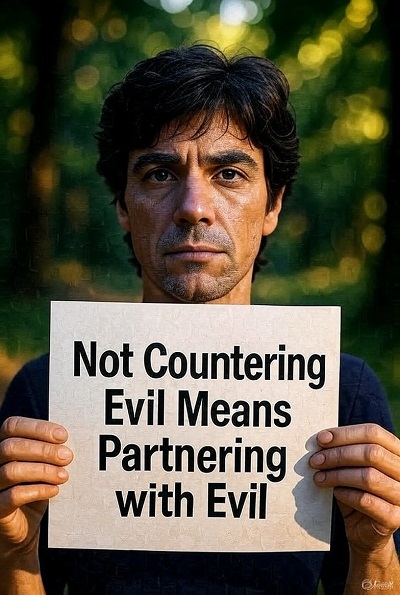
Not Countering Evil Means Partnering with Evil
11 November 2025 -

Quranic Verses on Social Evils
05 November 2025 -
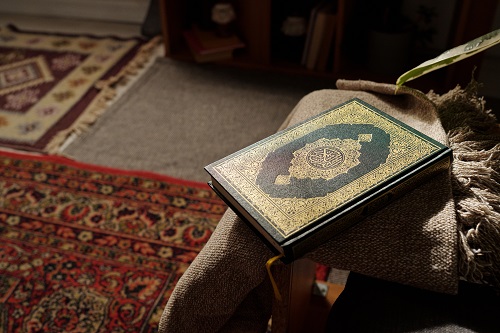
Quranic Verses on Same-Sex Relationships
03 November 2025 -
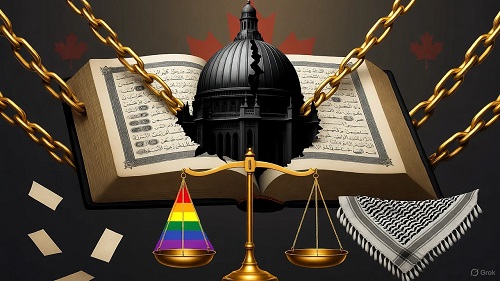
Assault on Faith—Jails for Bible-Quran Reciters? Free Passes for Rapists-Pedophiles?
02 November 2025 -
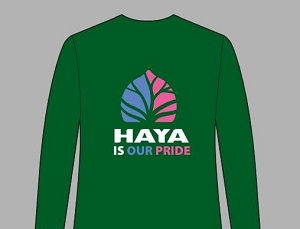
A Call to Reclaim Our Values: The Truth Behind Pride Day
29 June 2025 -
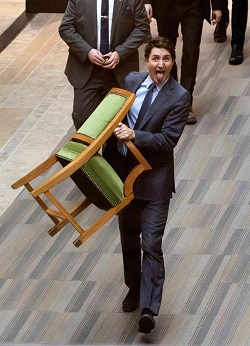
Justin Trudeau Left a Filthy Legacy
18 March 2025
